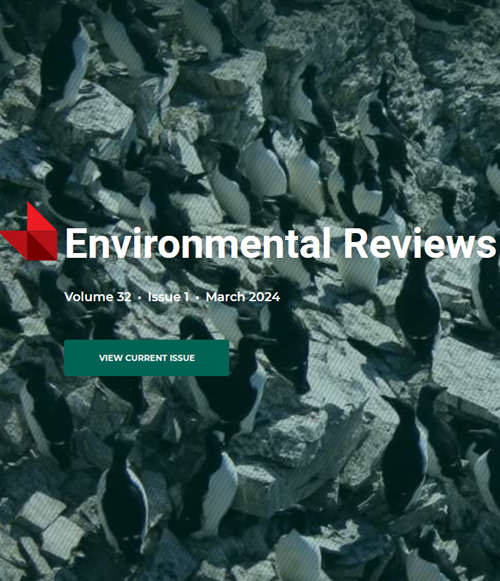我们为什么要监控?利用海鸟蛋追踪北极环境污染的趋势
IF 5.1
3区 环境科学与生态学
Q2 ENVIRONMENTAL SCIENCES
引用次数: 2
摘要
自1975年以来,一直在监测加拿大北极海鸟蛋中的污染物水平和趋势。近50年的监测提供了关于不同海鸟物种中各种污染物类别的时间和空间变化的关键信息。然而,以前的工作主要是孤立地评估单个或相关的污染物类别。因此,有必要共同考虑海鸟蛋中监测到的所有污染物,以确定监测在哪里取得了成功,寻找改进的领域,并确定未来研究的机会。在这篇综述中,我们评估了加拿大三个高北极地区和三个低北极地区的五种海鸟的主要遗留污染物和新出现的污染物的监测数据。我们回顾了加拿大北极海鸟蛋监测计划的历史,并讨论了监测工作如何随着时间的推移而变化;我们总结了北极海鸟蛋污染的时间、空间和种间变化,并确定了重要的知识差距;我们还讨论了在加拿大北极地区利用海鸟蛋进行生态毒理学研究的未来方向。最后,本文对蛋污染物监测计划进行了高层次的概述,并强调了加拿大北极地区长期持续监测海鸟污染物的重要性。本文章由计算机程序翻译,如有差异,请以英文原文为准。
Why do we monitor? Using seabird eggs to track trends in Arctic environmental contamination
Contaminant levels and trends have been monitored in eggs of seabirds from the Canadian Arctic since 1975. Nearly 50 years of monitoring have provided key information regarding the temporal and spatial variation of various contaminant classes in different seabird species. However, previous work has primarily assessed individual or related contaminant classes in isolation. There is therefore a need to collectively consider all of the contaminants monitored in seabird eggs to determine where monitoring has been successful, to find areas for improvement, and to identify opportunities for future research. In this review, we evaluated monitoring data for the major legacy and emerging contaminants of concern in five seabird species from three High Arctic and three Low Arctic colonies in Canada. We review the history of Canada’s Arctic seabird egg monitoring program and discuss how monitoring efforts have changed over time; we summarize temporal, spatial, and interspecies variations in Arctic seabird egg contamination and identify important knowledge gaps; and we discuss future directions for ecotoxicology research using seabird eggs in Arctic Canada. Ultimately, this paper provides a high-level overview of the egg contaminant monitoring program and underscores the importance of long-term and continued seabird contaminant monitoring in Arctic Canada.
求助全文
通过发布文献求助,成功后即可免费获取论文全文。
去求助
来源期刊

Environmental Reviews
环境科学-环境科学
自引率
3.50%
发文量
45
期刊介绍:
Published since 1993, Environmental Reviews is a quarterly journal that presents authoritative literature reviews on a wide range of environmental science and associated environmental studies topics, with emphasis on the effects on and response of both natural and manmade ecosystems to anthropogenic stress. The authorship and scope are international, with critical literature reviews submitted and invited on such topics as sustainability, water supply management, climate change, harvesting impacts, acid rain, pesticide use, lake acidification, air and marine pollution, oil and gas development, biological control, food chain biomagnification, rehabilitation of polluted aquatic systems, erosion, forestry, bio-indicators of environmental stress, conservation of biodiversity, and many other environmental issues.
 求助内容:
求助内容: 应助结果提醒方式:
应助结果提醒方式:


